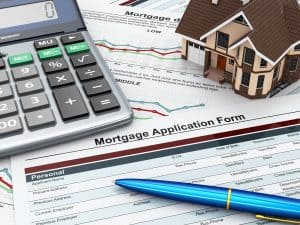Which Housing Markets Likely to Be Hardest Hit By Recent Rate Hike?

The Federal Reserve recently followed expectations, hiking interest rates by another 25 basis points, which put even more stress on an already battered housing market that’s been pushing back against these hikes for over a year.
The hike at the end of July was the 11th since March 2022, which reflects the Federal Reserve’s attempts to slow down inflation. The Fed did pause rate hikes last month but has since resumed the pattern seen over the past year. After this increase, the key rate is in a target range of 5.25% to 5.50%. That’s the highest seen since January 2001.
There are likely to be certain housing markets across the country hit harder than others, especially places with expensive properties that have seen a recent price increase.
These areas, according to analysts, are expected to be:

- Seattle
- San Diego
- New York
- Los Angeles
- Boston
- Miami
If buyers need a mortgage to purchase a property, there will probably be a significant impact on the higher-end, more expensive properties in these cities. It’s also important to remember that these markets endured tremendous strain since the housing boom of 2020 and 2021. These expensive cities were the first to see problems in their housing markets, even as other unlikely markets, such as those in the Sun Belt and Midwest, were thriving.
At the same time, Chen Zhao, an economist for Redfin, told Newsweek recently that properties considered higher-end tend to have more all-cash buyers. The properties requiring a mortgage, not purchased outright, are typically more at the middle or lower end. Those borrowers could be most affected by rate changes since they need a mortgage.
With increasing interest rates, borrowers with an adjustable rate mortgage will also be negatively affected.
The Redfin economist said to Newsweek in a statement that if wages aren’t increasing in lockstep, which is highly unlikely to happen, households will experience growing financial strain, and that means the demand for pricier homes goes down. She said that even so, adjustable mortgages make up a very small portion of loans—only around 3.5%, so it shouldn’t have a devastating effect on the larger housing market.
The Fed was applauded for pausing rate hikes in June, with housing experts and economists warning that it could create a devastating blow to the housing market. Even with inflation going downward, the Fed has since said key rates would be raised at least twice before year’s end. The July hike was expected, so markets had already priced it in, but future hikes might not be as expected.
Commercial real estate will probably see similar trends as compared to residential real estate, particularly for tenants  with long leases. The interest rates have already started adversely affecting commercial real estate.
with long leases. The interest rates have already started adversely affecting commercial real estate.
For example, Starwood Capital Group defaulted on a mortgage for $212 million in Georgia after the CEO warned about the negative effects rate hikes would have on the economy.
Office, apartment, and retail property values have gone down by 11% so far and could decline as much as 40% based on analysis from Nick Gerli, CEO of Reventure Consulting. This company analyzes real estate data.
